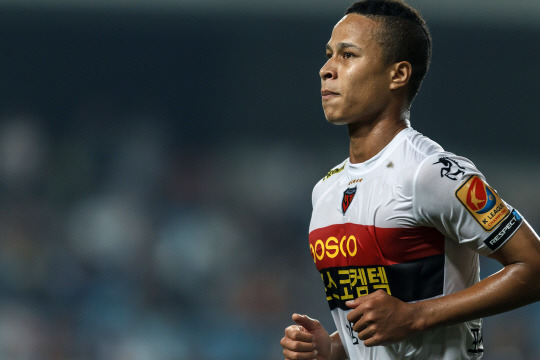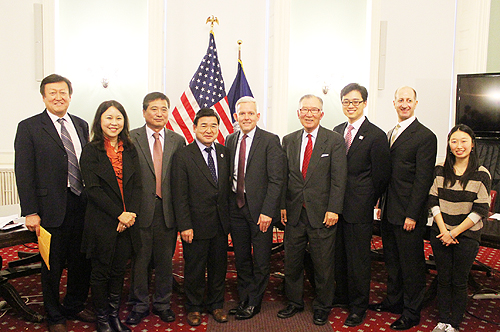by STEVE HAN | @steve_han
editor@charactermedia.com
South Korea’s national soccer team has invited Kang Soo-il to its training camp, which starts next week, making the 27-year-old forward only the second multiethnic soccer player in history to represent the country that still remains largely homogenous.
Before Kang, defender Jang Dae-il, whose father is of Brittish descent, represented South Korea at the 1998 World Cup in France.
Kang was born in Dongducheon, South Korea in 1987 under a Korean mother, Kang Sun-nam, and a black American GI father. His father left the family when his son was still an infant, leaving Kang to grow up without ever knowing his birth father. His moderate, but unlikely success in professional soccer was well publicized in South Korea when he became the Most Valuable Player in the K-League’s reserves league, a now-defunct competition that was designed to develop young players, while playing for Incheon United in 2008.
During his childhood, Kang said he had to persistently fight through racial discrimination from his peers while his mother worked laboring jobs to raise her only son. When Kang’s mother suffered a serious back injury in 2007, he had to drop out of Sangji University just six months after he started his freshmen year to make ends meet.
After dropping out of school, Kang took a three-week open tryout at Incheon United out of desperation and eventually signed his first professional contract. His annual salary at the time was a meager $10,000.
“Growing up, I never understood why having a different skin color gave a reason to other people to curse at me,” Kang told the JoongAng Daily in 2008. “People are supposed to be different. It’s only right to accept the differences.”
Incheon United signed Kang to a long-term deal after his impressive display in the reserves league, but Kang failed to live up to the expectations in the K-League as he scored just 13 goals in five seasons between 2009 and 2013. To make matters worse, he reached an all-time low last year after he scored just one goal in 27 games and was arrested for allegedly beating a man on the street after drinking.
But Kang got his second chance from Hwang Sun-hong, South Korea’s legendary striker of the past and now the coach of Pohang Steelers, who signed him on a loan deal before this past season. Hwang, who led the Steelers to a league title last year, mentored Kang and helped him realize his potential. Inspired by his coach, the athletic forward went on to score a career-high seven goals in all competitions and earned his first ever call-up to the national team ahead of the 2015 AFC Asian Cup, which takes place next month.
“Until this past season, if I couldn’t score and my team lost, I just let it get past me too easily,” Kang said in a recent interview with Naver Sports. “But in Pohang, I started to play in games where my team was winning because of my goals. After experiencing that, I started to feel guilty when I couldn’t help my team win. Being here changed me entirely and helped me become more responsible as a professional athlete. So once that thought process changed, even my behavior off the field changed, too.”
Although a national team call-up is an honor for any soccer player, Kang realizes that the upcoming training camp is merely a testing ground for the players in the K-League who would have to compete against those playing professionally in Europe for a chance to represent Korea at major international competitions, such as the World Cup.
Kang acknowledged that becoming a mainstay for the national team will be the toughest challenge of his career, but said he is desperate to make his mark to pave the way for future generations of mixed race Korean athletes and to give hopes to the children in the multiethnic Korean community.
“I’ve been inviting multiethnic Korean kids to my games consistently,” Kang said. “I don’t want them to feel discouraged. I would love for them to dream and have hopes through me. I want them to smile as proud members within the Korean society. So I want them and my mother to see me represent Korea in an international game. I’m curious to find out how it would feel when I wear Korea’s red jersey and have my right hand over my heart in front of the Korean flag before a game. That’s something I’ve always dreamed of.”
Photo courtesy of Chosun.com







